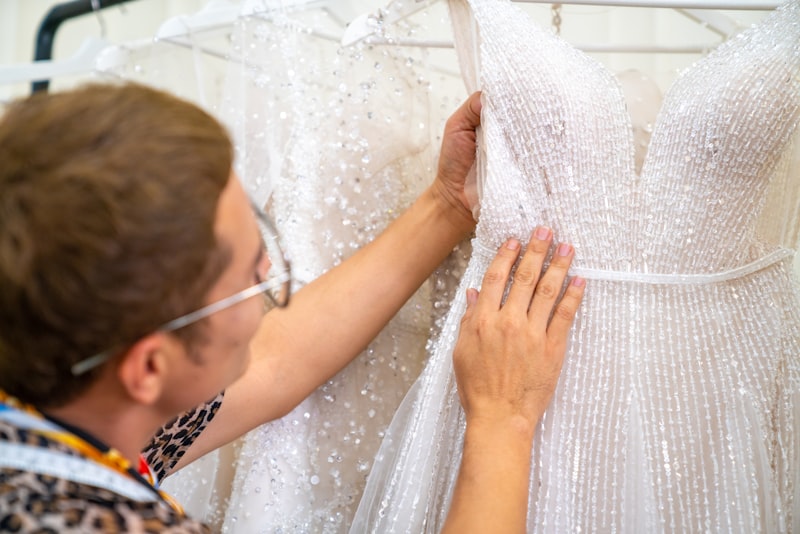Unlocking Cost-Effectiveness in Sourcing Wedding Dress OEM Partners
Unlocking Cost-Effectiveness in Sourcing Wedding Dress OEM Partners
The Importance of Cost-Effectiveness in the Wedding Dress OEM Sourcing Process
In the ever-evolving world of fashion, sourcing the right Original Equipment Manufacturer (OEM) for wedding dresses is crucial for any bridal business. A focus on cost-effectiveness ensures not just profitability but also the ability to provide high-quality options to customers. Below, we delve into various aspects of sourcing wedding dress OEM partners, emphasizing how to balance costs while maintaining quality.
Understanding the Wedding Dress OEM Landscape
OEM partners provide essential manufacturing capabilities, allowing businesses to offer unique and private-label designs. In the wedding dress market, where trends can shift dramatically, aligning with the right OEM is a strategic decision. Factors affecting this partnership include:
- Quality of Fabrics
- Production Capabilities
- Lead Time
- Expertise in Bridal Fashion
- Compliance with Regional Regulations
| Factor | Importance |
| Quality of Fabrics | Ensures customer satisfaction and durability of the dress |
| Production Capabilities | Ability to handle bulk orders and customization |
| Lead Time | Essential for meeting market demands and timely deliveries |
| Expertise in Bridal Fashion | Helps in understanding market trends and consumer preferences |
| Compliance with Regulations | Ensures smooth operations and mitigates risks |
Strategies for Cost-Effective Sourcing
While quality should never be compromised, there are several strategies businesses can adopt to ensure cost-effectiveness in sourcing their wedding dress OEM partners:
1. Develop Strong Relationships
Building a relationship with OEM partners can lead to better terms and prices. Frequent communication, collaboration on designs, and understanding their capabilities create a more favorable partnership. Strong relationships may allow businesses to negotiate volume discounts or flexible payment terms.
2. Conduct Thorough Research
Before committing to an OEM partner, extensive research is crucial. This includes visiting factories, reviewing samples, and checking their reputation in the industry. By conducting detailed evaluations, businesses can avoid potential pitfalls and ensure a cost-effective choice.
3. Leverage Technology
Utilizing technology in sourcing can enhance efficiency and reduce costs. Implementing tools for inventory management, demand forecasting, and communication with partners can streamline operations. Investing in technology is crucial for long-term cost-effectiveness.
4. Optimize Design Processes
Consider optimizing design and production processes to minimize waste. Collaborating with designers who understand manufacturing constraints can yield designs that are not only beautiful but also easier and more cost-effective to produce.

Cost Analysis: What to Consider
To achieve cost-effectiveness, consider all associated costs in the sourcing process:
- Production Costs: Labor, materials, and overhead costs should be evaluated.
- Shipping and Logistics: Consider both cost and time efficiency in logistics.
- Quality Assurance: Investing in quality checks may incur initial costs but can save long-term expenses associated with defects.
- Market Analysis: Understand market pricing to ensure your pricing remains competitive.
| Cost Type | Considerations |
| Production Costs | Labor, materials, overhead |
| Shipping Costs | Timeliness vs cost of logistics |
| Quality Assurance | Initial investment vs long-term savings |
| Market Pricing | Competitive pricing strategies |
Common Questions in Sourcing OEM Partners
Many bridal companies have similar inquiries regarding OEM partnerships. Here are some common questions:
What is the Best Way to Vet an OEM Partner?
The best way to vet an OEM partner is by conducting comprehensive research that includes factory visits, reviewing previous work, and asking for references from existing clients.
How Can I Negotiate the Best Prices with OEM Partners?
Establishing a strong relationship, understanding market rates, and being open to discussing volume contracts can help negotiate better prices. Consider discussing potential long-term agreements for added leverage.
What Should I Include in a Contract with an OEM?
Contracts should include production timelines, quality assurance processes, payment terms, and responsibilities from both parties. Clear communication can prevent misunderstandings and disputes.
Final Thoughts on Cost-Effectiveness in Sourcing
Sourcing wedding dress OEM partners efficiently and cost-effectively demands diligence, strategic planning, and an eye for quality. By following the outlined strategies and maintaining strong partnerships, businesses can navigate the complexities of the bridal industry successfully. Keep in mind:
- Always prioritize quality while managing costs.
- Establish and nurture relationships with your OEM partners.
- Invest in technological resources to enhance efficiency.
- Regularly review and adapt your strategies based on market trends and feedback.
By adopting these methods, bridal businesses can ensure they remain competitive, meet customer expectations, and achieve sustainable profitability in a challenging marketplace.
